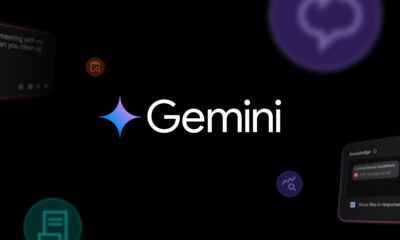News
Social Media Addiction Is Greatly Impacting Arab Youth
A survey has revealed disturbing findings about social media consumption and its mental health impact on young people.

As of 2023, the Arabic-speaking region has the highest per-capita levels of social media adoption globally, with the average internet user owning 8.4 accounts. Now, findings from the 15th annual ASDA’A BCW Arab Youth Survey have shown that a significant majority of the region’s youth are finding it challenging to disconnect from social media — something that is negatively impacting their mental health.
The survey highlights that the Arab world’s youth spend in excess of 3.5 hours a day on social media. Nearly 75% of users admit to struggling to disconnect from digital platforms, with 61% conceding that their mental health has suffered due to social media addiction.
Social media addiction has meant that a consensus has formed among young Arabs that big tech companies — such as Meta, Google, and X — hold “too much power”. Over 90% of respondents also think these companies are not doing enough to combat disinformation.
Another trend revealed by the survey is that a significant percentage of respondents (13%) aspire to be “social media influencers” rather than taking up careers in typically prestigious fields such as medicine or engineering.
Also Read: The Largest Data Breaches In The Middle East
Despite the increasing time and energy spent on social media platforms, nearly 60% of Arab Youth say traditional social experiences such as “eating out” and “hanging out with friends” are defining elements of their lifestyles. The findings suggest that even in the digital age, in-person social experiences remain important.
The Arab Youth’s growing dependence on social media is concerning and is clearly impacting mental health. As the region battles with high levels of youth unemployment, the findings of the ASDA’A BCW Arab Youth Survey call for a rethink of the role technology plays in the lives of young people and its impact on their future.
News
Rabbit Expands Hyperlocal Delivery Service In Saudi Arabia
The e-commerce startup is aiming to tap into the Kingdom’s underdeveloped e-grocery sector with a tech-first, locally rooted strategy.

Rabbit, an Egyptian-born hyperlocal e-commerce startup, is expanding into the Saudi Arabian market, setting its sights on delivering 20 million items across major cities by 2026.
The company, founded in 2021, is already operational in the Kingdom, with its regional headquarters now open in Riyadh and an established network of strategically located fulfillment centers — commonly known as “dark stores” — across the capital.
The timing is strategic: Saudi Arabia’s online grocery transactions currently sit at 1.3%, notably behind the UAE (5.3%) and the United States (4.8%). With the Kingdom’s food and grocery market estimated at $60 billion, even a modest increase in online adoption could create a multi-billion-dollar opportunity.
Rabbit also sees a clear alignment between its business goals and Saudi Arabia’s Vision 2030, which aims to boost retail sector innovation, support small and medium-sized enterprises, attract foreign investment, and develop a robust digital economy.
The company’s e-commerce model is based on speed and efficiency. Delivery of anything from groceries and snacks to cosmetics and household staples is promised in 20 minutes or less, facilitated by a tightly optimized logistics system — a crucial component in a sector where profit margins and delivery expectations are razor-thin.
Despite the challenges, Rabbit has already found its stride in Egypt. In just over three years, the app has been used by 1.4 million customers to deliver more than 40 million items. Revenue has surged, growing more than eightfold in the past two years alone.
Also Read: Top E-Commerce Websites In The Middle East In 2025
CEO and Co-Founder Ahmad Yousry commented: “We are delighted to announce Rabbit’s expansion into the Kingdom. We pride ourselves on being a hyperlocal company, bringing our bleeding-edge tech and experience to transform the grocery shopping experience for Saudi households, and delivering the best products – especially local favorites, in just 20 minutes”.
The company’s growth strategy avoids the pitfalls of over-reliance on aggressive discounting. Instead, Rabbit leans on operational efficiency, customer retention, and smart scaling. The approach is paying off, having already attracted major investment from the likes of Lorax Capital Partners, Global Ventures, Raed Ventures, and Beltone Venture Capital, alongside earlier investors such as Global Founders Capital, Goodwater Capital, and Hub71.

























